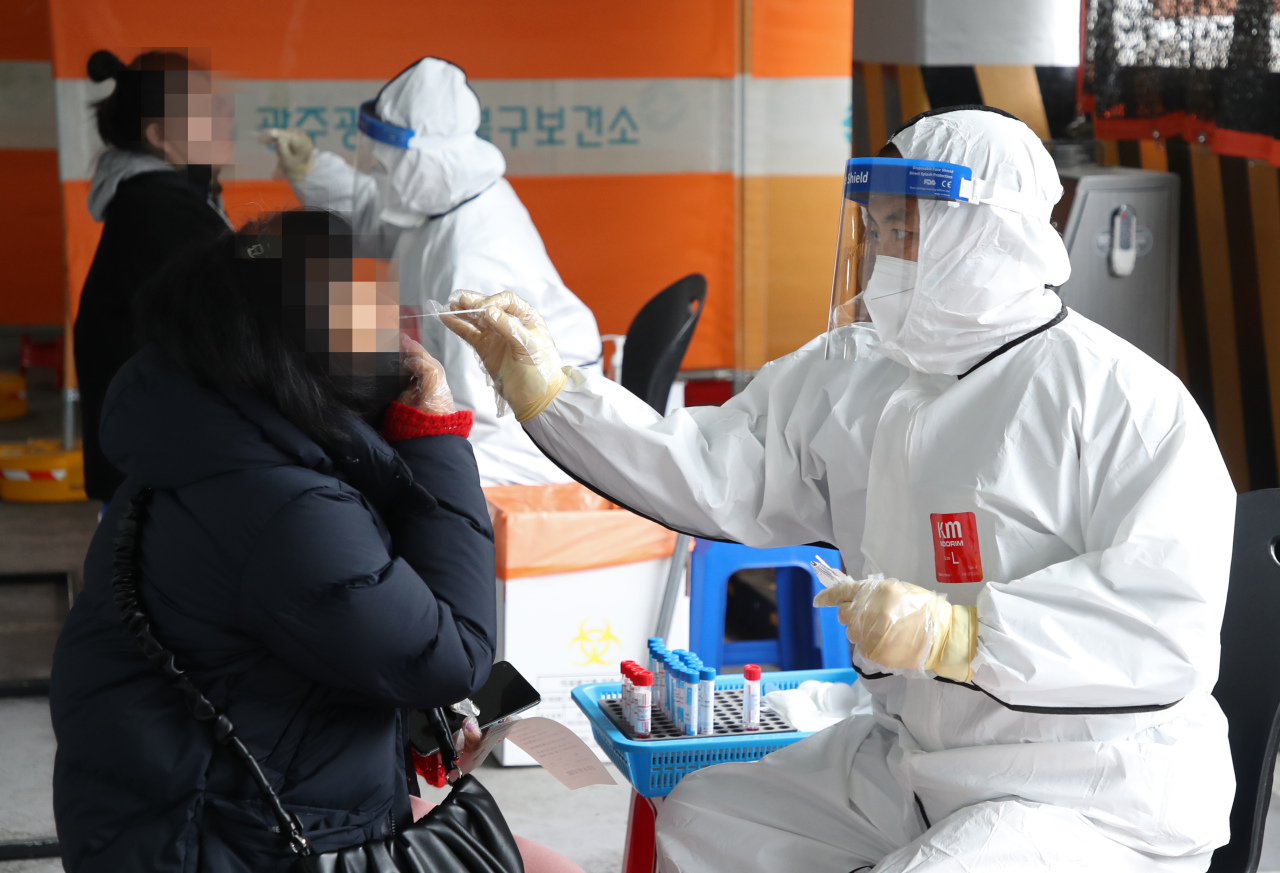 |
Healthcare workers take samples from visitors to a COVID-19 testing center in Gwangju, Tuesday. (Yonhap) |
South Korea‘s daily coronavirus cases hit an all-time high of 8,571 as of midnight Monday, with the quickly spreading omicron variant now dominant, the Korea Disease Control and Prevention Agency said Tuesday.
It is the first time the daily figure has topped 8,000 cases dating back to when the country reported the first COVID-19 infection in January 2020.
The previous all-time high was 7,848 on Dec. 15, 2021.
Despite the sudden increase in daily cases, the number of critically ill COVID-19 patients stayed relatively low at 392, declining 26 from the previous day.
The death toll increased to 6,588 with 23 deaths on the day, bringing the fatality rate to 0.88 percent.
South Korea has seen its daily coronavirus cases surge over the past week, from 3,857 on Jan. 17 to 7,513 on Sunday.
Health authorities said the sharp increases in recent days have been largely due to the omicron variant.
On Monday, the government also confirmed that the omicron variant has become the new dominant COVID-19 strain in the country.
Local experts said the number of daily COVID-19 cases could top 10,000 this week. The figure could also surpass 20,000 and beyond in February, they predicted.
The public health agency said it will implement new virus response measures to counter the spread of the omicron variant.
The Ministry of Health and Welfare on Tuesday said it will secure 400 additional centers to support at-home treatment.
The government will also speed up COVID-19 testing by increasing the prevalence of self-testing.
Starting Wednesday, visitors to COVID-19 testing centers in four areas that are currently seeing rapid increases of omicron cases -- Gwangju, South Jeolla Province and Pyeongtaek and Anseong in Gyeonggi Province -- will receive self-test kits. Only those who receive positive self-test results will then take a polymerase chain reaction test.
People over the age of 60 and those in high-risk groups will continue to be given initial PCR tests.
The government will first trial the new COVID-19 testing rules in the four areas before applying them nationwide, possibly later this month.
Meanwhile, the government will adjust the quarantine period for vaccinated COVID-19 patients, cutting it down to seven days from the current 10.
A vaccinated person who comes into close contact with a COVID-19 patient will no longer have to be quarantined. But the person will have to take a PCR test later.
This new quarantine rule is to be in effect from Wednesday.
By Shim Woo-hyun (
ws@heraldcorp.com)





![[Today’s K-pop] Blackpink’s Jennie, Lisa invited to Coachella as solo acts](http://res.heraldm.com/phpwas/restmb_idxmake.php?idx=644&simg=/content/image/2024/11/21/20241121050099_0.jpg)


